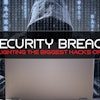Regardless of what you might hear from some, ransomware in the industrial sector is at an all-time high in terms of frequency and cost. Zero day and day one vulnerabilities are being discovered at a historic level and patching continues to be a challenge.
Asset visualization and endpoint security have become more daunting thanks to technology-driven expansions of the industrial attack surface. And then there’s AI, SBOMs and botnets all waiting to wreak havoc on the ICS.
All of these factors, along with the growing complexity of the hacker community, means that industrial cybersecurity is no longer just about white and black hats. In fact, some would argue that perhaps the most important player in the cybersecurity arena now wears red.
Joining us to discuss his approach to "red teams on steroids" is Guy Bejerano, CEO of SafeBreach, a leading provider of Breach and Attack Simulation tools and services. Watch/listen as we discuss:
- What it means to think like a hacker, but defend like a CISO.
- Developing security with a focus on running a business.
- Connecting the dots between the technical aspects of an attack and the impact of it on the business.
- Improving cybersecurity ROI by demonstrating the value of closing "gaps."
- Focusing on known attacks, as opposed to the "ghost" vulnerabilities.
- The growth of collaboration between IT and OT.
- Why manufacturing is still susceptible to legacy attacks.
To catch up on past episodes, you can go to Manufacturing.net, IEN.com or MBTmag.com. You can also check Security Breach out wherever you get your podcasts, including Apple, Amazon and Overcast. And if you have a cybersecurity story or topic that you’d like to have us explore on Security Breach, you can reach me at jeff@ien.com.
To download our latest report on industrial cybersecurity, The Industrial Sector’s New Battlefield, click here.






















